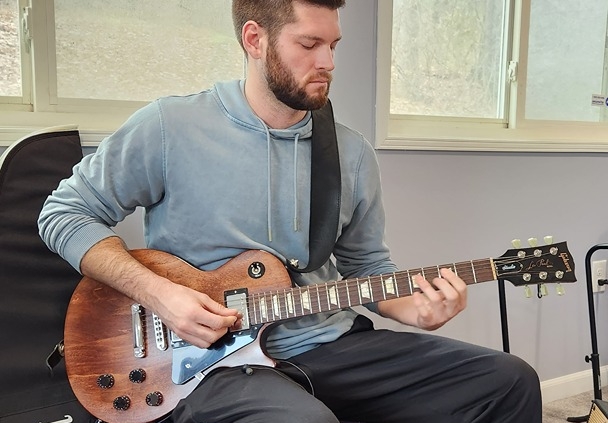Navigating the Fretboard
One of the initial challenges in lead guitar is familiarizing yourself with the entire fretboard. The fretboard can appear daunting at first, with its array of notes and patterns. However, breaking it down into smaller sections and gradually connecting them will enhance your spatial awareness and fretboard navigation. Start by learning the notes on each string and practice visualizing scales and chord shapes in different positions. Use tools like fretboard diagrams and mnemonic devices to aid memorization.
Developing Speed and Dexterity
Speed and dexterity are essential for lead guitar playing. Building these skills requires consistent practice and patience. Begin with slow, deliberate practice to ensure accuracy before gradually increasing your tempo. Exercises such as chromatic scales, finger independence drills, and alternate picking routines are invaluable. Incorporate a metronome into your practice sessions to maintain a steady rhythm and track your progress over time.
Mastering String Bending and Vibrato
Expressive techniques like string bending and vibrato add soul to lead guitar playing. Achieving control and accuracy in these techniques demands patience and deliberate practice. For string bending, focus on bending to precise pitches and use a tuner to verify your accuracy. Experiment with different vibrato styles, such as classical, blues, and wide vibrato, to find what best suits your playing style. Practice these techniques slowly, gradually increasing speed as your control improves.
Ear Training for Improvisation
Improvising over chords requires a keen ear. Invest time in ear training exercises, listen to various styles of music, and try to replicate what you hear. This skill will empower you to improvise creatively and confidently. Tools like interval training apps, transcription exercises, and playing by ear are excellent for developing this ability. Spend time jamming with backing tracks in different keys to practice your improvisational skills.
Understanding Music Theory
While not mandatory, a basic understanding of music theory can be immensely beneficial for lead guitarists. Concepts like scales, modes, and chord progressions provide a theoretical foundation that enhances your improvisational skills and musical expression. Study major and minor scales, pentatonic scales, and the modes of the major scale. Learn how different scales and modes relate to each other and how to apply them in your solos.
Overcoming Performance Anxiety
Stepping into the spotlight can be intimidating. To overcome performance anxiety, practice regularly in front of others, start with smaller audiences, and gradually work your way up. Remember, each performance is an opportunity to grow. Use visualization techniques to imagine yourself performing confidently. Record yourself playing and watch the recordings to identify areas for improvement and to become more comfortable with performing.
Balancing Technique and Emotion
Achieving a balance between technical proficiency and emotional expression is an ongoing process. Don’t sacrifice one for the other. Strive to convey emotion through your playing while maintaining control over the technical aspects. Listen to your favorite guitarists and pay attention to how they balance technique and feel. Practice playing with dynamics, varying your attack, and using different articulations to add emotional depth to your music.
Diversifying Your Repertoire
Sticking to one style can limit your growth. Challenge yourself by exploring various genres. Each style introduces unique challenges that contribute to your overall development as a lead guitarist. Dive into blues, rock, jazz, classical, and other genres to broaden your musical horizons. Learning different styles will enhance your versatility and open up new avenues for creative expression.
Conclusion
Learning lead guitar is a dynamic and rewarding journey that involves overcoming barriers and continually pushing your boundaries. Embrace challenges as opportunities for growth, stay patient, and celebrate your progress along the way. Remember, every guitarist faces obstacles, but it’s the perseverance and passion for the instrument that lead to mastery. Keep breaking those barriers and let your lead guitar skills soar!


